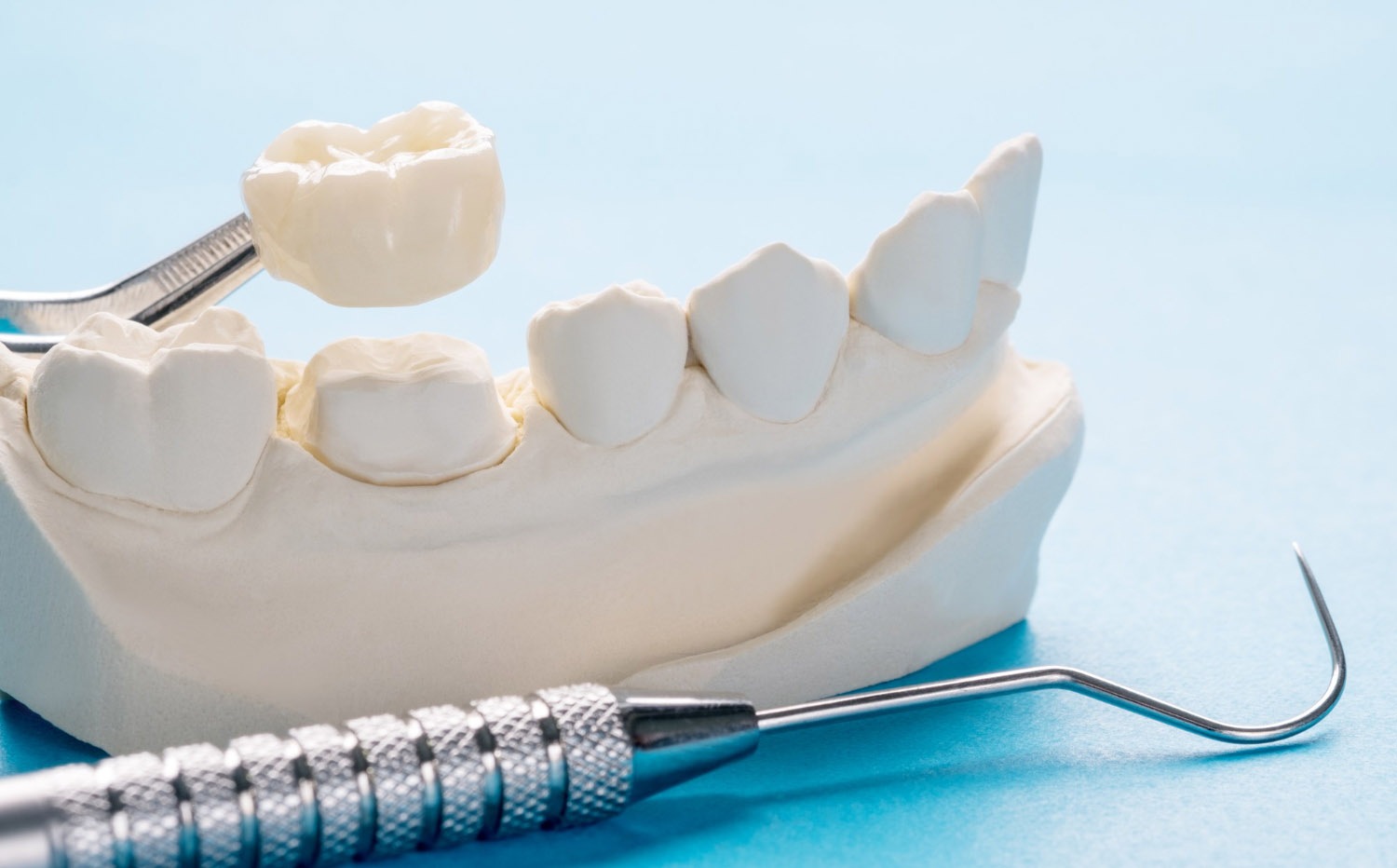

What is dental crown?
A dental crown is a protective cover or cap that serves as a replacement for a natural tooth. It is an excellent solution when a tooth is severely damaged and cannot be restored with a simple filling.
Dental crowns have gained widespread popularity due to their ability to fully restore the shape, size, and functionality of the original tooth.
These crowns are highly durable, capable of withstanding temperature changes, and resistant to chemical influences and corrosion. Moreover, they are biocompatible, meaning they do not cause allergies and closely mimic the appearance of a natural tooth, making them aesthetically pleasing.
Crown placement procedure
The placement of a dental crown involves a two-step procedure.
Step 1: Examining and Preparing the Tooth
The dentist begins by examining the tooth and may take an x-ray to assess its condition. If there is any decay, it will be removed, and the tooth will be reshaped by trimming the surface along the sides. The amount of trimming is determined based on the type of crown to be used.
In some cases, if the tooth has significant decay and there is not enough tooth structure to support the crown, the dentist may use filling material to rebuild the tooth. After preparing the tooth, an impression is taken using a paste to create a mold of the tooth and the surrounding teeth to ensure a proper fit and bite.
The impressions are sent to a dental lab to manufacture the crown. If the crown is made of porcelain, the dentist will select a shade that closely matches the natural color of the patient's teeth. In the meantime, a temporary acrylic crown is placed to protect the prepared tooth.
Step 2: Placing the Permanent Crown
The permanent crown is usually received after one to two weeks. The dentist removes the temporary crown and checks the fit and color of the permanent crown. If everything looks good, the permanent crown is cemented in place using a permanent adhesive.
Dental crowns can be made from various materials such as metal alloys, ceramic, porcelain, porcelain fused to metal, or composite resin. The choice of material depends on factors like the tooth's location, function, gum tissue position, and patient preference. In our Istanbul, Turkey clinic, we use premium quality crowns to ensure longevity.
Care After Receiving the Permanent Crown
Taking special care of the permanent crown helps prolong its lifespan. We recommend the following:
- Brushing carefully twice a day.
- Flossing daily to maintain good oral health.
- Avoiding chewy and hard foods that may cause the crown to crack, especially if it's made of porcelain.
- Using a night guard if grinding or clenching occurs during sleep to protect the crown and other teeth.
Who Is a Candidate for a Permanent Crown?
A permanent crown may be recommended if:
- There is a cavity that is too large for a filling.
- The tooth is worn down or cracked.
- A root canal treatment has been performed, and the crown will protect the restored tooth.
- A patient wants to cover a discolored or poorly shaped tooth for a more aesthetically pleasing smile.
Experience the convenience of booking your dental crown appointment on QAAPH. Our skilled dental professionals offer top-quality restorative solutions to address dental issues and leave you with a beautiful and durable smile.